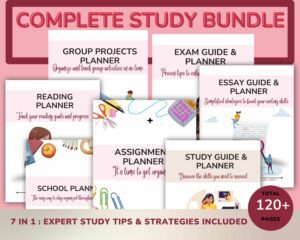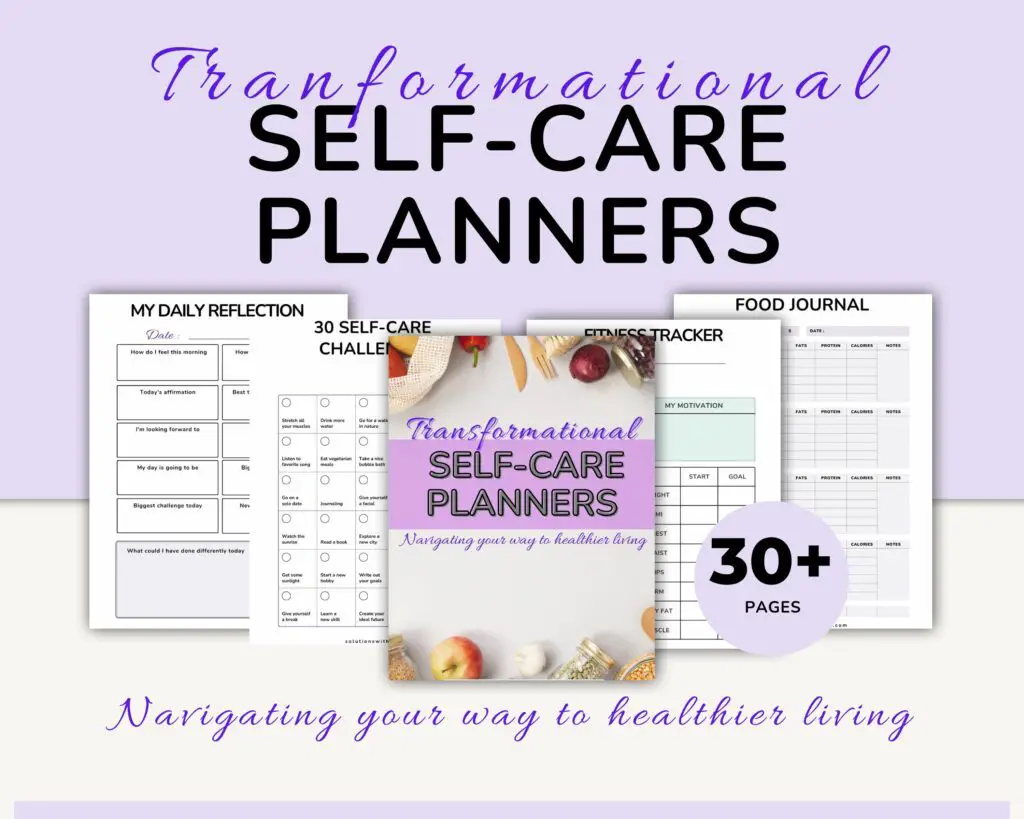It helps you learn, grow, and become more successful in life. That’s why you should consider making reading a habit.
Reading is one of the most beneficial activities a person can do. Not only does it help improve comprehension and vocabulary, but reading also allows for growth in other areas such as creativity and knowledge. That’s why it’s essential to know how to make reading a habit.
Notably, for reading to be considered a habit, it should be done repeatedly and voluntarily. Yet, according to research done in 2017, 81% of Americans aged 15 and over don’t read for pleasure on a daily basis, a significant increase from the 72% recorded in 2004.
Actually, the average American now reads for a meager 17 minutes daily. Furthermore, the decline in reading habit is more significant among men (Ingraham, 2018).
This is alarming because research has shown that reading for pleasure can have a number of benefits. Luckily reading habits can be cultivated and you’re about to discover exactly how to do just that.
Read also: 10 Amazing benefits of reading a book
- It helps you learn, grow, and become more successful in life. That's why you should consider making reading a habit.
- Tips to make reading a habit
- 1. Read before you sleep
- 2. Keep a book with you at all times
- 3. Make time to make reading a habit
- 4. Expand your scope to develop the habit of reading
- 5. Use a timer to make reading a habit
- 6. Try asking for books as presents to read more
- 7. Keep track of what you read for it to be habitual
- 8. Create a list beforehand to develop the habit of reading
- 9. Read actively to make reading a habit
- 10. Join or start a book club to make reading a habit
- 11. Read in chronological order especially when the text is difficult
- 12. Keep a journal of your thoughts and feelings about the book
- 13. Share the knowledge you get from reading
- 14. Set realistic goals to make reading a habit
- 15. Replace another activity with reading until it becomes habitual
- 16. Have fun to make reading a habit
- Why do persons prefer printed books than digital books?
- Factors that prevent you from developing the habit of reading
- What are the advantages of developing the habit of reading?
- Final words on how to make reading a habit
- Why are habits more important than inspiration?
- How can I improve my critical thinking skills?
Want the perfect academic resource for your studies?
This all-in-one resource is perfect for any person who wants to take charge of their academic journey.
The bundle includes a total of 7 printables, each equipped with multiple worksheets, trackers, and expert advice.
Tips to make reading a habit
There is no single answer to this question as different people have different preferences and habits.
A good book is like a good friend– it can take you to places you’ve never been, introduce you to new ideas, and provide comfort and companionship.
However, there are a few general tips that may help you to make reading a more consistent part of your life:
- Read before you sleep
- Keep a book with you at all times
- Make time for reading
- Expand your scope
- Use a timer
- Ask for books as presents
- Keep track of what you read
- Create a list of books to read
- Read actively
- Join a book club
- Read in chronological order
- Keep a journal of thoughts on the book
- Share the knowledge you get from reading
- Set realistic goals
- Replace another activity with reading
- Have fun
1. Read before you sleep
Reading before you sleep has many benefits. It can help to improve your focus and concentration, and it can also help to reduce stress levels.
Furthermore, reading before you sleep can help to establish a regular reading habit. If you make a point of reading for at least thirty minutes before bed each night, you will soon find that it becomes a natural part of your routine.
Ultimately, not only will you reap the benefits of a calm and relaxed mind, but you will also develop a love for reading that will last a lifetime.
2. Keep a book with you at all times
A book can be a great companion, whether you’re stuck in a waiting room or taking a long journey. It’s always there for you, ready to provide distraction, entertainment and enlightenment.
But picking the right book to take with you can be tricky. If you’re going to be carrying it around all day, you want something that’s lightweight and easy to carry.
And if you’re stuck somewhere for a long time, you don’t want something that’s too short or too dense.

"It is not true that we have only one life to live; if we can read, we can live as many more lives and as many kinds of lives as we wish." — S.I. Hayakawa
3. Make time to make reading a habit
A habit is only developed when it becomes part of your daily routine. Make time for reading every day, just like you would for brushing your teeth or going for a run.
You can start small, with just 15 minutes a day. And if you find it difficult to make time during the week, set aside some time on weekends to catch up.
Once reading becomes a regular part of your life, you’ll be surprised at how much you enjoy it.
Try to set aside a specific time each day to read for pleasure. Even if you only pick up a page or two a day, it can add up.
Making time for reading is crucial for making it a habit.
4. Expand your scope to develop the habit of reading
One way to overcome the challenge of making reading a habit is to expand your scope. As such, rather than focusing on a single genre or type of book, try reading widely from different categories.
This will not only keep you interested, but it will also help you to discover new authors and perspectives.
Additionally, don’t be afraid to branch out beyond traditional books. There are now many ways to read, including e-books, audio books, and even online articles.
By expanding your scope, you can more easily make reading a part of your daily routine.
5. Use a timer to make reading a habit
One way to make reading a habit is to set a timer.
Once you’ve made time for reading, stick to your schedule and set a timer.
This way, you’ll ensure that you’re making enough time for reading every day.
In addition, setting a timer will help you to focus on your reading and prevent you from getting distracted.
If you find that you’re struggling to stay focused, try setting a timer for shorter intervals of time.
For example, set a timer for five minutes and then take a one-minute break.
By breaking up your reading into smaller chunks, you’ll be more likely to stay focused and make progress.
6. Try asking for books as presents to read more
If all your friends and family members know that you love to read, ask for book tokens as presents.
By asking for books as gifts, you will be more likely to set aside time to read them.
Make sure to return the favor and give your loved ones books as well.
Not only will they appreciate the thought, but you’ll also be helping to spread the joy of reading.
7. Keep track of what you read for it to be habitual
This is a great way to see how much progress you’ve made and what books you’ve already read.
It’ll also help you remember all the important concepts and stories you’ve learnt.
You can do this by creating a bookmark for each book, a digital reading list or even just writing down the name in a book.
8. Create a list beforehand to develop the habit of reading
One way to make reading a part of your daily routine is to create a list beforehand of all the books you want to read.
This way, you’ll always have a go-to list of titles when you’re looking for something new to read.
9. Read actively to make reading a habit
To help ensure that reading becomes a habit is to read actively. This means engaging with the text, rather than simply skimming through it.
Asking questions, taking notes, and discussing the material with others are all excellent ways to read actively.
By making reading a more interactive experience, it is more likely to stick as a habit.
10. Join or start a book club to make reading a habit
Joining a book club is a great way to get more out of the book and to see what others thought about it.
It can also lead to some interesting discussions.
You can find discussion boards and groups on social media, or even start your own.
Joining a library will not only expose you to a wonderful variety of books but also to other avid readers as well
11. Read in chronological order especially when the text is difficult
If you find that you’re struggling to understand a book or concept, reading it in chronological order can help.
This will allow you to follow along more easily and get a better grasp of what’s going on.
Maybe there’s another book or article that you should read prior to this one.
If you still have trouble after reading it chronologically, try looking up summaries or reviews online. Sometimes, hearing someone else explain the plot can help you understand it better.
12. Keep a journal of your thoughts and feelings about the book
This is a great way to track your progress and see how you’ve changed as a reader over time.
It can also be interesting to look back on after you’ve read dozens of books.
Plus, it’s a fun way to express your thoughts and feelings about the books you’ve read.
13. Share the knowledge you get from reading
Reading can be a very personal experience, but it’s also one that can be shared with others.
Whether you’re discussing a book with a friend or writing a review online, sharing your thoughts and opinions about what you’ve read can help others find new books to enjoy.
It can also lead to some interesting discussions. Also, consider creative ways that you can use the knowledge such as a blog or sharing inspiring quotes on social media.
14. Set realistic goals to make reading a habit
Don’t expect to read hours every day right away. Make sure that you’re setting realistic goals.
Once you’re comfortable with that, gradually increase the amount of time you spend reading each day. Remember, habits take time and effort to develop.
15. Replace another activity with reading until it becomes habitual
If you are struggling to make reading a part of your daily routine, consider replacing it with another activity.
For example, if you usually watch television before bed, try reading for 30 minutes instead. Or, if you take a break at work to check social media, use that time to read a few pages of a book instead.
Making small changes like these can help you develop the habit of reading without feeling like you are making a huge sacrifice.
16. Have fun to make reading a habit
Most importantly, reading should be enjoyable, so make sure to find ways to make it fun for you.
If you’re not enjoying a book, don’t force yourself to finish it.
Life is too short to read books you don’t enjoy. Find books that interest you but don’t be afraid to try something different.
Having fun will improve your motivation for reading. Research proves that having a positive attitude when it comes to reading will encourage positive reading experiences.

"Once you learn to read, you will be forever free." — Frederick Douglass
Why do persons prefer printed books than digital books?
It’s no secret that the world is becoming increasingly digitized. Music, movies, and even books can now be enjoyed in digital form.
While this shift has certainly had its benefits, there are many who still prefer printed books to digital ones. Why is this?
There are a few different reasons why printed books may be more appealing than digital ones. For some, it’s simply a matter of preference and loyalty.
They enjoy the physicality of holding a book in their hands and turning its pages. Many persons even enjoy the smell of books.
Others prefer to stick to the printed books because they can read them on the Sabbath when they refrain from electronic devices.
Others find that they can focus more easily when reading a printed book, as opposed to reading from a screen.
Additionally, printed books don’t require batteries, specific technological skills or an internet connection, making them more convenient for reading in places like airplanes or park benches.
Of course, there are also some drawbacks to printed books. They can be heavy to carry around and take up more space than digital book files.
Additionally, they can be more expensive to purchase than their digital counterparts.
But for many people, the benefits of printed books outweigh the drawbacks. In an increasingly digital world, there’s something reassuring about being able to curl up with an old-fashioned book.
Which do you prefer?
Factors that prevent you from developing the habit of reading
This lack of reading can be attributed to a number of factors. One reason why people may not read more often is that they simply do not enjoy it.
Reading can be seen as a chore, and without a personal interest in the subject matter, it can be difficult to motivate oneself to pick up a book.
Another reason why people may not read more often is that they have trouble finding time for it. With work, family, and social obligations, it can be hard to schedule time for reading.
Additionally, some people may not feel they have the skills necessary to understand and enjoy reading materials.
Discover the 9 main reasons why we don’t read more often
What are the advantages of developing the habit of reading?
Reading is one of the most important skills a person can learn. Not only does it improve your communication and writing skills, but it also helps to improve your knowledge and understanding of the world around you.
In addition, reading has been shown to have a number of other benefits, including reducing stress levels, improving memory and concentration, and even increasing life expectancy.
In short, there are few activities that offer as many benefits as reading. Whether you’re reading for pleasure or for educational purposes, make sure to set aside some time for this important activity every day.
In this blog post, I explore the many benefits of reading and why it’s so important for both our personal and professional lives.
Read more on the benefits of reading
Final words on how to make reading a habit
Reading is a habit that can be cultivated with a little effort and determination.
However, you’ll likely reap numerous benefits from becoming a more avid reader.
Comment below if you’ve found any other techniques that have helped you form or break the reading habit.
READY TO TRANSFORM YOUR SELF-CARE ROUTINE?
It’s time to make self-care a delight instead of a chore.
This incredible free resource comes packed with features for tracking everything from your daily water intake to how many steps you take.
Related topics
Why are habits more important than inspiration?
Inspiration is great. It’s the feeling you get when you know you can do something, when you have a vision for what you want to achieve.
But inspiration is fleeting. It comes and goes, and it’s not always there when you need it. That’s why habits are more important than inspiration.
Habits are what you do when the inspiration isn’t there. They’re the things you do even when you don’t feel like doing them.
And over time, they can help you to achieve great things. So if you want to be successful, focus on developing good habits. The inspiration will take care of itself. Read more
How can I improve my critical thinking skills?
Critical thinking skills are essential for success in any field. Whether you’re a student, working professional, or business owner, sharp critical thinking skills will help you make better decisions and excel in your career.
Luckily, there are several ways to improve your critical thinking skills. Read more
References
Chettri K, Rout S.K (2013) Reading Habits – An Overview. IOSR Journal Of Humanities And Social Science (IOSR-JHSS) Volume 14 , Issue 6, PP 13-17 e-ISSN: 2279-0837, p-ISSN: 2279-0845.
Davidovitch N, Yavich R, Druckman E, (2016) Don’t throw out pater and pens yet: On the reading habits of students. Journal of internation Education Research. Vol 12 (4).
Ingraham, C (2018) Leisure reading in the U.S. is at an all-time low
Méndez M. Ten simple rules for developing good reading habits during graduate school and beyond. PLoS Comput Biol. 2018 Oct 11;14(10):e1006467.
Rushana Greenidge-Horace












Leave a Reply